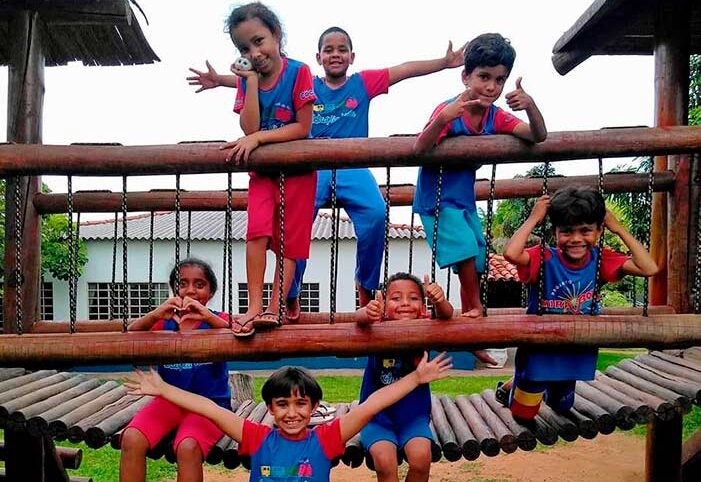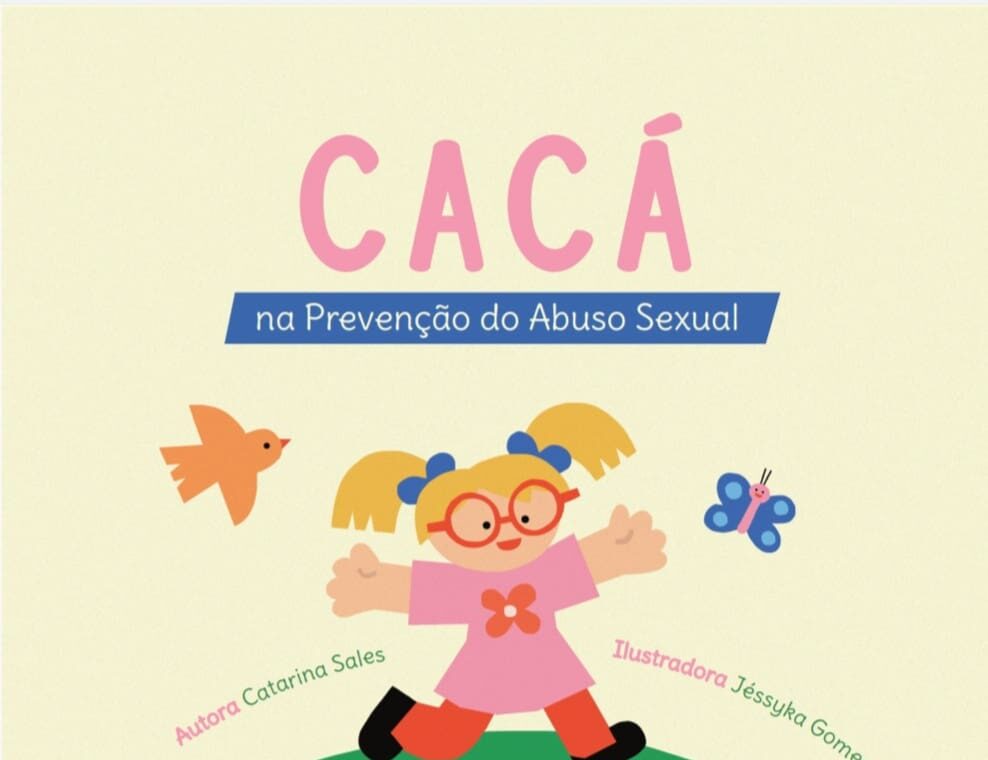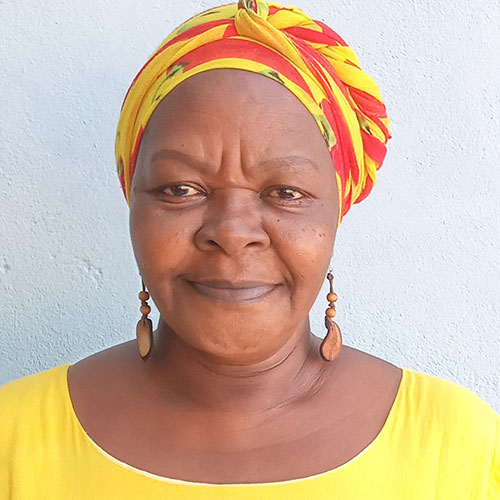Projeto Estação Vida focuses on safe development of children while parents work
An initiative by a group of residents who saw the need to support mothers who needed a place to leave their children


In the Shopping Park neighbourhood, in Uberlândia, Minas Gerais, Estação Vida has been in action for over 17 years: an initiative by a group of residents who saw the need to support mothers who needed a place to leave their children while they spent the day off working. Today, they assist 160 children and teenagers with different activities after school hours.
Gabrielly Oliveira Nóbrega, responsible for the marketing at the institution,describes in this interview the journey and evolution of the project over the years.
Neuza Nascimento: How did the Estação Vida project start?
Gabrielly Nóbrega: Officially, the project dates back 17 years, but the actions began well before that. Today, we are a formal institution. This work was started by a group of residents here at Shopping Park, who attend the Catholic church. At the time, they realised that many mothers had no other option but to leave their children because they had nowhere else to take them; as a result, many of them found themselves alone on the streets in the absence of their mothers. So, this group of residents decided to develop a project to be able to support these mothers, so that they could have a place to leave their children while they worked in piece to bring food home. Initially, it was a small project, something very simple. The space we have today started as an occupation, but due to the beautiful work that is developed here, the city hall realised the need for this institution and legalised the project and the space. One of the founders, Leoni, is still here today and is present daily at the institution. Over that time, she has seen many children come and go and she has also been able to witness the positive impact it has had on many lives over that time.
Neuza Nascimento: What are the purposes of the project?
Gabrielly Nóbrega: Estação Vida goes beyond being a simple place where children stay while their parents work. In fact, this is one of the pillars of our development so that parents can work in peace, knowing that their children are in a safe place, and having a good time.
Students stay here after school hours, an average of 4 hours a day, from Monday to Friday. Our mission is, during the period they stay with us, to be able to contribute to the knowledgebase of each one. The time we have with them we need to make the best use of. A Futsal is not just a Futsal, a Chess is not just a Chess; and so on, like the other workshops. Here we seek to be a family for the participants, or an extension of it; we try to add values to the base of these children so that they can grow, we encourage the development of each one so that, in the future, they can be conscious protagonists of their lives, responsible and good citizens.
Neuza Nascimento: How many collaborators does the project have?
Gabrielly Nóbrega: Our team is made up of 35 people. It has the Sewing Team, Instructors, Coordination, Management, Finance and Marketing.
We need to hire three more people to work in the kitchen and in the physical maintenance of the space. Eleven employees are paid, and the rest of the team is supported by project notices and some are volunteers.
Neuza Nascimento: How does the selection of beneficiaries take place?
Gabrielly Nóbrega: Selection takes place through an existing waiting list. Parents enrol their children on this list, and, at the end of each year, after re-enrolling, we evaluate our student body and, according to the availability of places, contact the families, who are waiting for an opportunity. The next step is to do an interview. We give preference to the most urgent cases, for example, a single mother who has three children, needs to work, and has no one to leave them with.
Neuza Nascimento: What is the number of beneficiaries assisted?
Gabrielly Nóbrega: 160 students from 6 to16 years old.
Neuza Nascimento: How is the institution maintained?
Gabrielly Nóbrega: We carry out some activities that generate income and support from the city hall, which is a subsidy, but we also have, mainly, our sewing sector, which has been with us since the beginning. Initially, this area was more focused on crafts, but now we are working mainly with the B2B line, which is the production of uniforms for companies, personalised orders, such as ecobags used as gifts at events and so on. One of the main sources of income generated within the institution comes from the sewing team.
We also do Beneficent Chicken Stew, June celebration and Christmas kits, etc. Anyone who is interested in having a look at our productions, just access our Instagram. Finally, we also have the support of partner companies that help us on specific occasions. Some are now gone, others have been with us for a long time, others are recent and this happens in an organic way.
Neuza Nascimento: Are there any challenges you currently face?
Gabrielly Nóbrega: The biggest challenge of the project itself is the realisation of its own mission. It is to have an impact on someone’s life, leave a positive mark to contribute to the formation of that person so, in the future, when they grow up and face everyday situations, they can remember the principles that were passed on to them. It’s complicated and it’s our main challenge. We want to leave a mark, to have a little space in all of their hearts for a lifetime, and this is something that must be done meticulously, with respect, care, and love. Another challenge that has been very pleasant for our institution and is being overcome little by little, is the development of our space that was built and improved little by little. The court, for example, in the beginning was made of canvas and now we have a structured court, and so on. Currently, due to our internal work in terms of fundraising, we have been tidying up this space for a while, renovating, painting, building new rooms and meeting some other needs. There is still a lot to be done, but let’s say we are just about halfway there. And this is another challenge; we are patiently raising funds so that we can leave the project space in the best possible condition for our students.
Neuza Nascimento: And victories?
Gabrielly Nóbrega: The challenges I have mentioned can also be seen as victories. And I can mention others, like having mothers of students who were once our students. Looking at these people and seeing that they have fond memories of the project, as well as looking at the space and seeing that it is gradually changing and improving for the students, is part of our success. In addition to the people who passed through here, who today contribute to a better future, passing on what they learned at Estação Vida.
Neuza Nascimento: Would you like to list anything institution may need?
Gabrielly Nóbrega: We need financial resources, but we also accept continuous or sporadic donations such as food, toys, new and used clothes, shoes and accessories in a state of being sold in our thrift store. You know those clothes in good condition that you don’t wear anymore? For us, it would be an entry of resources and that, in the end, will help with the day-to-day expenses of the institution. We also accept donations of items for commemorative dates such as Christmas, Easter and Children’s Day.
Neuza Nascimento: Is there anything you would like to add that I didn’t ask?
Gabrielly Nóbrega: Here at Estação Vida we try to be more than employees and students. Employees have more experience with children and adolescents, so this is an opportunity to pass on your life experiences and advice to these students and, in a way, encourage them to tread a path where they can grow conscious of their actions. This is our main purpose, to add values to the base of knoledge of children and adolescents who pass through here, so that in the future they can do this with their descendants and so on. We seek to contribute to a better world, planting values and encouraging them to be good citizens and to pass on what they learn here, becoming multipliers of these actions.
Did you like the project? Support this idea!
For more information, visit the website: https://projetoestacaovida.com.br/
Contacts: +55 (34) 9 9971-5806/ +55 (34) 3224-8731/adm@projetoestacaovida.com.br





